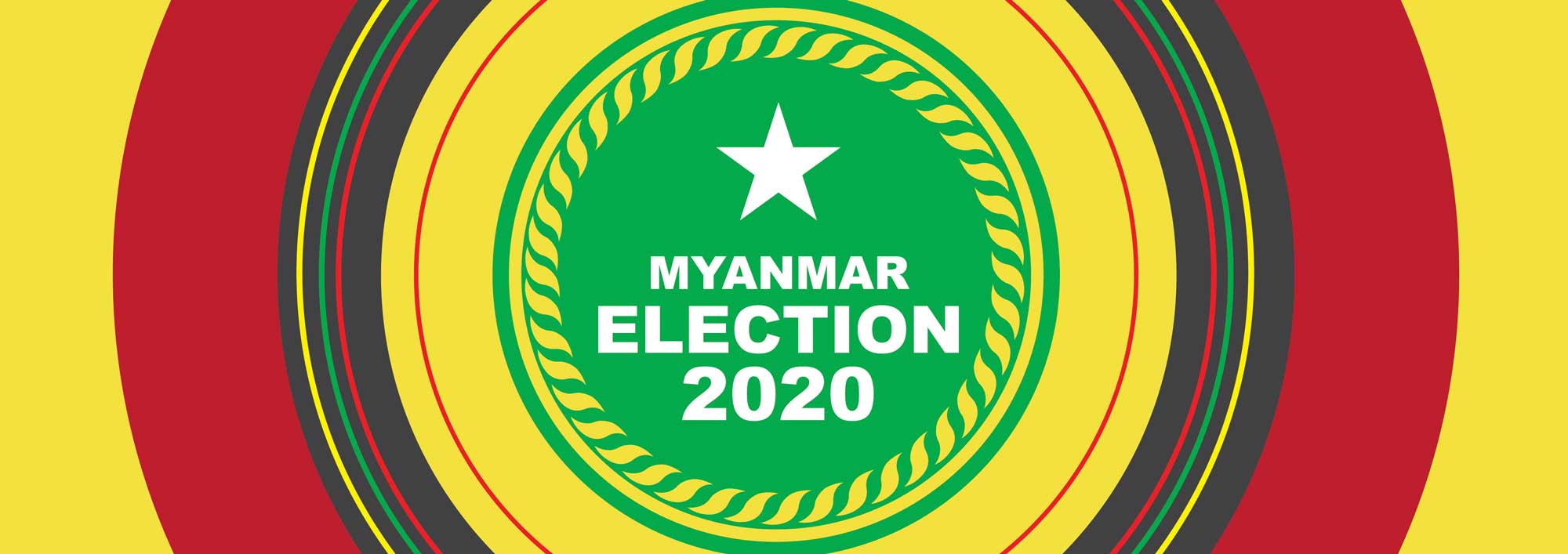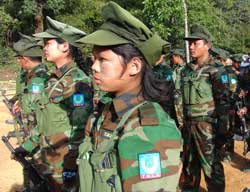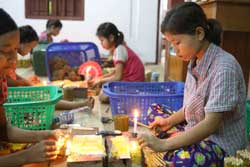
Myanmar’s key election issues
Democratic reform
 Myanmar’s democratic reform efforts have stalled and in
some cases have taken a turn for the worse in the past five
years. NLD attempts to amend the 2008 constitution to curb
the political power of the military and allow Aung San Suu
Kyi to become president have been blocked by military
lawmakers. Read more...
Myanmar’s democratic reform efforts have stalled and in
some cases have taken a turn for the worse in the past five
years. NLD attempts to amend the 2008 constitution to curb
the political power of the military and allow Aung San Suu
Kyi to become president have been blocked by military
lawmakers. Read more...
Ethnic conflict
 There are simmering conflicts with ethnic armies in other
border regions too. The government has held three rounds of
the Union Peace Conference and will hold another in August
but it still appears far from achieving a political deal,
even with ethnic armed groups that have signed a national
cease-fire agreement. Read more...
There are simmering conflicts with ethnic armies in other
border regions too. The government has held three rounds of
the Union Peace Conference and will hold another in August
but it still appears far from achieving a political deal,
even with ethnic armed groups that have signed a national
cease-fire agreement. Read more...
Economy and poverty
 Myanmar’s economy has grown at an annual rate of around 6
percent during the NLD’s time in office, but the COVID-19
pandemic and resultant government-ordered lockdown are
expected to all but wipe out GDP growth for the current
fiscal year. Read more...
Myanmar’s economy has grown at an annual rate of around 6
percent during the NLD’s time in office, but the COVID-19
pandemic and resultant government-ordered lockdown are
expected to all but wipe out GDP growth for the current
fiscal year. Read more...
International relations
 Myanmar’s international standing, which had been elevated
by its historic transition to democracy, has plummeted over
the 2017 military-led crackdown on Rohingya Muslims in
Rakhine State. Myanmar faces genocide-related charges at the
International Court of Justice, the U.N.’s top court which
settles disputes between nations.
Read more...
Myanmar’s international standing, which had been elevated
by its historic transition to democracy, has plummeted over
the 2017 military-led crackdown on Rohingya Muslims in
Rakhine State. Myanmar faces genocide-related charges at the
International Court of Justice, the U.N.’s top court which
settles disputes between nations.
Read more...
Corruption
 The NLD government has made some progress in tackling
growing inequality and rising business costs in Myanmar, but
corruption remains endemic in both the public and private
sectors, and is sure to be pressing issue for the next
administration. Read more...
The NLD government has made some progress in tackling
growing inequality and rising business costs in Myanmar, but
corruption remains endemic in both the public and private
sectors, and is sure to be pressing issue for the next
administration. Read more...
Migrant laborers and refugees
 The numbers of ethnic minority people displaced by conflict
has only climbed under the NLD government. In addition to
the hundreds of thousands of Rohingya displaced internally
and in Bangladesh, some 200,000 mostly ethnic Rakhines have
been uprooted by the current conflict in Rakhine State.
Read more...
The numbers of ethnic minority people displaced by conflict
has only climbed under the NLD government. In addition to
the hundreds of thousands of Rohingya displaced internally
and in Bangladesh, some 200,000 mostly ethnic Rakhines have
been uprooted by the current conflict in Rakhine State.
Read more...


